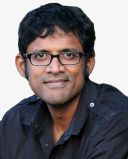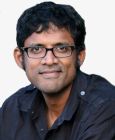Psychology
Figuring Out the Answer to 'Who Am I?'
Why the mind is ill-suited for answering "who am I?"
Posted February 7, 2012 Reviewed by Jessica Schrader
"What is the purpose of life?" "Is there a God?" "What on Earth are we doing here?" Among life's big questions, the one that has always interested me the most is: Who am I?
I imagine that other people find this question to be very interesting and meaningful as well. Human beings are hyper-social creatures. We care a lot—at times, too much—about what other people think of us. As such, it seems natural that we should care about who we are and what we think of ourselves.
But how does one get to the bottom of "who am I?"
Of all academic fields, the one that appears most suitable for answering the question is psychology. However, those familiar with the major themes to emerge from psychology over the past few decades may realize that the mind is prone to some pitfalls that make it ill-suited for figuring out the self. There are three themes, in particular, that call into question mind's capacity for self-discovery.
Our Brain Is Programmed to Make Up Stuff
The first theme is that our mind isn't calibrated to perceive reality as it is, but rather, is calibrated to make sense of our reality. And often, this means that our mind just makes up stuff that doesn't really exist. A well-known example of this is that, although we literally cannot see anything in what is known as the "blind spot" (the spot in our visual field where nerves connect to the retina), our brain "fills in" this gap in our visual field. But you wouldn't know that in your daily experience.
Likewise, as a variety of findings show, we are programmed to see patterns even if they don't actually exist, leading us to infer meaning in totally random events. For example, many people saw a "devil" in the smoke that the 911 attacks on the World Trade Center generated. Similarly, many of us are convinced that basketball players (as well as other sportspersons) go through hot hands and cold hands even when the players' performance is merely going through random cycles.
The fact that we are programmed to see things that don't really exist implies that our brain is not be capable of perceiving the truth about ourselves: we may be making up stuff about ourselves that isn't really true. For example, our brain may make up reasons for why we decided to marry the person we married, or why we chose a particular product over another. Indeed, a plethora of findings in decision-making suggest that we are routinely blind to the true determinants of our judgments and decisions--a notion that is oft-repeated in the work of behavioral economists. Further, and this is why the mind is particularly ill-suited for figuring out the self, even if the stories we tell ourselves about who we are, and why we did what we did, are sometimes true, we are unable to discern whether our self-told stories are true or fabricated.
The Desire for Self-Discovery Can Interfere with Discovering the Self
The second theme is that the very act of trying to figure ourselves out may interfere with discovering who we are. In what is known as the mere measurement effect, researchers found that people who are asked questions about an activity or a product behaved differently from those who were not asked these questions. For example, in one study, those asked whether they were likely to donate blood in the future were more likely to donate it than those not asked this question. This effect lasted up to a year after the participants were asked the question!
Extrapolating from the mere measurement findings, it seems that self-enquiry may reveal aspects of the self that may not have even existed before one embarked on the self-enquiry. For example, the mere act of asking yourself if you are a kind and honest individual may reveal that you are kind and honest. Had you asked a different question ("Am I capable of harming others?"), instead--or not asked any question at all--you may have a different perception of yourself. If so, to what extent are you truly kind and honest? More generally, to what extent can you truly know yourself by asking questions about who you are?
The "I" Is More Complicated than the Mind Can Conceive
Finally, we—like reality itself—may be too complex and dynamic to be fully understood through our finite minds. To be sure, we can make some relatively accurate broad-stroke generalizations about ourselves, e.g., "It is unlikely that I will ever smoke," or "I like Indian food better than I like English food." But one should be cautious in coming to much more specific conclusions about oneself.
We like to believe that we—and others around us—have relatively stable likes and dislikes, and traits. (Mostly, we like to think of ourselves as well-meaning, smart, and talented—a phenomenon known as the self-serving bias or the "Lake Wobegon Effect".) But, as studies on priming have repeatedly shown, our personality isn't as stable as we think it is. In general, we exhibit many more shades of saintliness and sinfulness, introversion and extraversion, cowardliness and bravery, love and hate, vengefulness and forgiveness, etc. than we think we do.
The truth is that we are not one person, but many people in one. In fact, the most accurate way to think of ourselves is that we exist as a broad set of potentialities, rather than as a narrow set of traits. The particular trait we manifest at any point in time depends on the circumstances in which we find ourselves. Thus, as Miller's famous findings showed, even normal people--people like you and me—are capable of delivering fatal electric shocks to others. Likewise, as Zimbardo's findings showed, even normal people can turn into mean-spirited disciplinarians under the "right" conditions.
This means that it may not be possible to know ourselves to any meaningful level of specificity: we can only know ourselves at a relatively abstract and vague level—as a "portfolio of possibilities."
So, How Do You Figure Out the Answer to "Who Am I?"
Given these themes, I am personally pessimistic that the mind can be used to figure out the answer to "Who am I?" This does not mean that the mind is totally useless when it comes to answering the question. As mentioned earlier, we can certainly make some broad generalizations about ourselves through gaining familiarity with findings in psychology and through introspection. Further, we can also come to understand, though the use of the mind, that the mind has its limits, especially when it comes to self-enquiry.
So, is there any alternative way of getting to know oneself?
To me, a particularly alluring alternative is that of going beyond the mind. Almost all spiritual traditions involve a practice of silence that encourages exploring the space of "no thought." The idea is to switch off the mind such that you can get to know the reality "as it is"—that is, perceiving reality without the filter of the mind.
Is there any merit to this idea? Is it possible to experience anything without the mind? And what would you find out about who you are if you experienced the state of no mind?
There's only one way to know for sure—by experiencing the state of no mind for yourself.
Interested in these topics? Go here for my new (and free!) online course on happiness.




